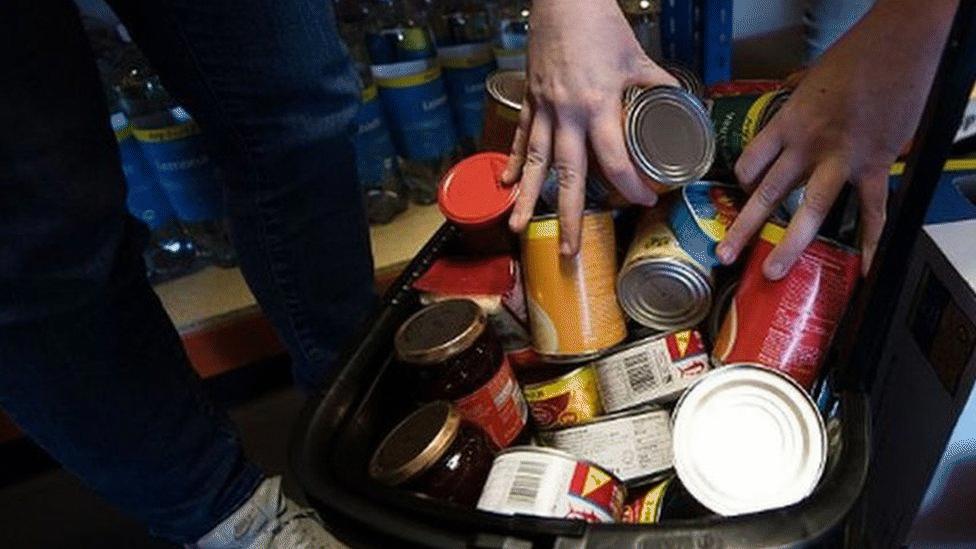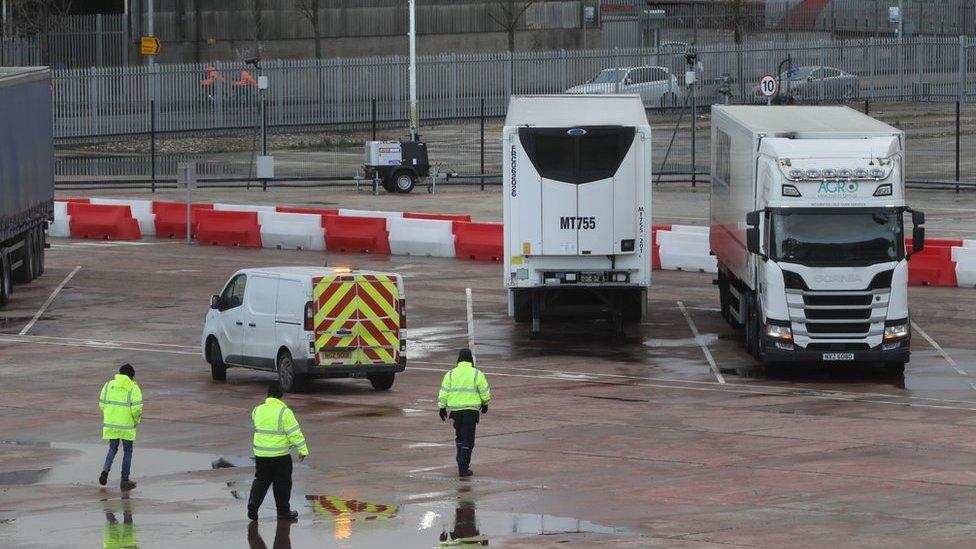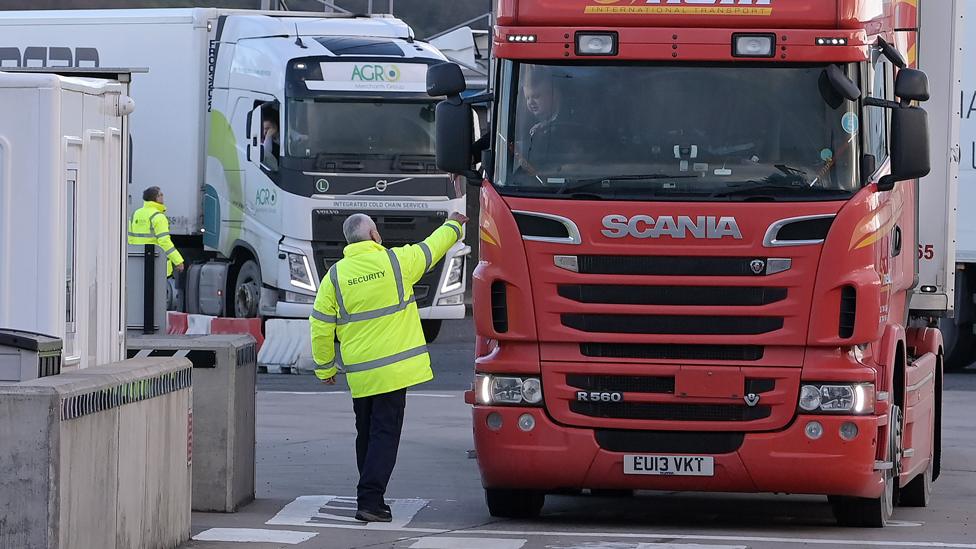GB food manufacturers 'significantly reduce sales to NI'
- Published
- comments

The FDF said that large business make up the majority of the volume of products sold to Northern Ireland from GB
GB food manufacturers have significantly reduced sales to Northern Ireland as a result of the Protocol, an industry survey suggests.
The Food and Drink Federation (FDF) surveyed 83 members between 4 and 19 October.
Just under half the respondents were large businesses with more than 250 employees.
Among those, large business sales volumes to Northern Ireland were down by an average of 10% this year.
The FDF said that large businesses make up the majority of the volume of products sold to Northern Ireland from GB.
Smaller businesses reported larger drops in sales but those figures are based on a very small sample.
Across all businesses in the survey, sales to Northern Ireland were down by 13% on average.

Food products arriving in Northern Ireland from GB face a range of processes, checks and documentation
The Protocol is the Brexit deal which prevents a hard Irish border by keeping Northern Ireland inside the EU's single market for goods.
That also creates a new trade border between Northern Ireland and the rest of the UK.
Food products arriving into Northern Ireland from GB face the greatest range of new checks and controls.
However, not all those checks are being applied due to "grace periods".
Raw materials
The FDF survey suggests that if the grace periods ended without new arrangements then sales volumes from GB would fall further - by up to a third.
The respondents suggested that the biggest negative impact would be on raw materials and ingredients.
The EU has acknowledged that the Protocol is causing difficulties and has proposed new arrangements which it says would significantly reduce the checks and controls.

Supermarkets have used more local suppliers of fresh processed meat products like sausage and burgers
Those proposals are part of a negotiation between the UK and EU.
Anecdotal evidence suggests that local producers in Northern Ireland have been able to increase sales to customers like supermarkets.
In particular, supermarkets have used more local suppliers of fresh processed meat products like sausage and burgers, rather than bringing them in from GB.
In the Republic
The volume of container and trailer traffic between Great Britain and Dublin Port was down 21.2% in the first nine months of this year, according to a report by RTE.
The decrease on the same period last year is a result of the impact of Brexit border controls since January.
Containers, which have been moving between ports, have also been reported as being less full than they were pre-Brexit.
In contrast, traffic to and from Continental ports increased by 36.3% in the same nine months.
In a statement, the Dublin Port Chief Executive, Eamon O'Reilly, said the only positive thing since Brexit is that much feared delays to traffic had not materialised.
He also said the "dislocation" of traffic ports in Northern Ireland would be a "permanent feature" and a reversal of what happened when the Single European Market came into being 30 years ago.
Related topics
- Published16 October 2021

- Published2 February 2024

- Published13 October 2021
